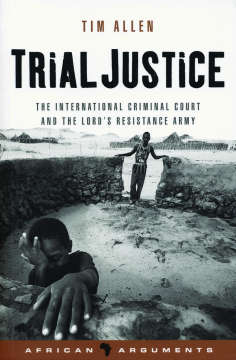
Additional Information
Book Details
Abstract
The International Criminal Court (ICC) has run into serious problems with its first big case -- the situation in northern Uganda.
There is no doubt that appalling crimes have occurred here. Over a million people have been forced to live in overcrowded displacement camps under the control of the Ugandan army. Joseph Kony's Lord's Resistance Army has abducted thousands, many of them children and has systematically tortured, raped, maimed and killed. Nevertheless, the ICC has confronted outright hostility from a wide range of groups, including traditional leaders, representatives of the Christian Churches and non-governmental organizations. Even the Ugandan government, which invited the court to become involved, has been expressing serious reservations.
Tim Allen assesses the controversy. While recognizing the difficulties involved, he shows that much of the antipathy towards the ICC's intervention is misplaced. He also draws out important wider implications of what has happened. Criminal justice sets limits to compromise and undermines established procedures of negotiation with perpetrators of violence. Events in Uganda have far reaching implications for other war zones - and not only in Africa. Amnesties and peace talks may never be quite the same again.
Dr Tim Allen Is a Reader at the London School of Economics and Programme Director of the post-graduate programme in Development Studies.
'..an excellent book on the northern Uganda conflict...'
Carlos Rodriguez, Ugandan Observer
'...excellent and very up-to-date book...Tim Allen's book is really valuable. It contains a wealth of background material, and firsthand interview material gathered in northern Uganda, on the issue of the interaction between the ICC and the situation [in Uganda].'
Helena Cobban, 'Just World News'
'For those engaged in efforts to improve the lives of people in the north, this book is an informative read. For those who are engaged in the punditry business, it is an imperative...[Allen] brings out all of the issues and engages in a detailed analysis of the diverse views on justice and reconciliation especially for and among the Acholi people with particular reference to the ICC.'
The Sunday Vision (Uganda)
Table of Contents
| Section Title | Page | Action | Price |
|---|---|---|---|
| Contents | vii | ||
| Illustrations | ix | ||
| Acronyms | xi | ||
| Preface | xiii | ||
| Map: \rDistricts of northern Uganda affected by the LRA | xviii | ||
| IDP populations receiving relief assistance | xix | ||
| 1 | Introduction: ending impunity | 1 | ||
| International law and the most serious crimes | 4 | ||
| A resurgence of international criminal trials | 9 | ||
| The creation of the ICC | 16 | ||
| 2 | The coming of the Lord’s Resistance Army | 25 | ||
| Political upheavals, spirituality and guerrilla war | 28 | ||
| Joseph Kony and the LRA | 37 | ||
| War and counter-insurgency strategies | 44 | ||
| 3 | Displacement and abduction | 53 | ||
| Living in IDP camps | 53 | ||
| Living with the LRA | 60 | ||
| Some experiences of abduction | 66 | ||
| 4 | Amnesty, peace talks and \rprosecution | 72 | ||
| The change in political context | 72 | ||
| The Amnesty Act | 74 | ||
| Peace talks | 78 | ||
| Referral to the ICC | 82 | ||
| Reactions to the ICC in Uganda | 83 | ||
| Legal aspects of the ICC intervention | 88 | ||
| 5 | Concerns about the court | 96 | ||
| The ICC is biased | 96 | ||
| The ICC exacerbates the violence and endangers vulnerable groups | 102 | ||
| The ICC is spoiling the peace process | 117 | ||
| 6 | Justice and healing | 128 | ||
| Institutionalization of ‘mato oput’ | 132 | ||
| A diversity of local views | 138 | ||
| Chiefs, churches and spirits | 148 | ||
| The evidence on healing and justice | 160 | ||
| 7 | Conclusion: a learning process | 169 | ||
| 8 | Postscript: the warrants | 182 | ||
| Notes | 196 | ||
| Bibliography | 218 | ||
| Index | 223 |
